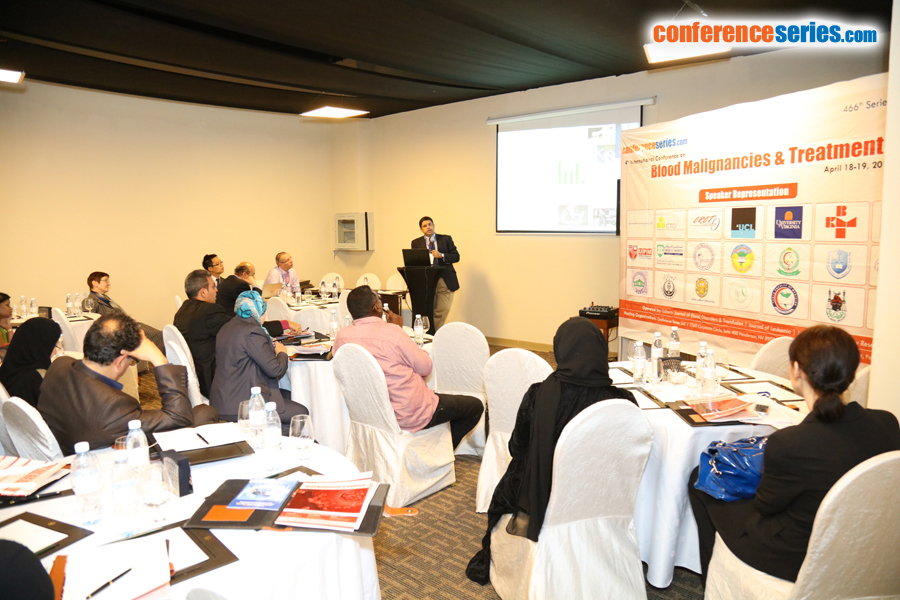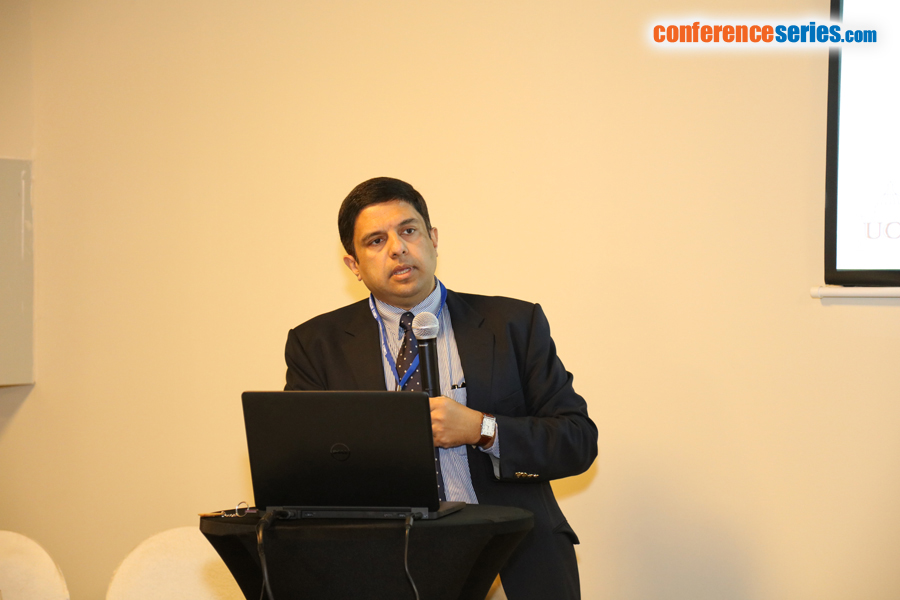
Ashutosh Wechalekar
University College London ,UK
Title: Systemic AL amyloidosis - novel approaches to treatment
Biography
Biography: Ashutosh Wechalekar
Abstract
Light chain (AL) amyloidosis is a rare but increasingly recognized complex disorder. It is a consequence of tissue deposition of misfolded monoclonal immunoglobulin light chains protein which forms amyloid fibrils. Most patients have an underlying plasma cell dyscrasia and a small proportion have a lymphoplasmacytic lymphoma. The clinical features are determined by the organs affected by the tissue amyloid deposition. The main organs affected by systemic AL amylolidosis are heart, kidneys, liver, peripheral/autonomic neuropathy and soft tissues. The diagnosis is made by histological demonstration of amyloid deposition on a tissue biopsy (or abdominal fat aspirate) by Congo red staining followed by amyloid fibril typing by immunohistochemistry or mass spectrometry. This is followed by assessing the extent of organ damage (particularly cardiac) to decide a risk stratified approach to treatment. There have been exciting advances in treatment with improvement in survival from 2 years to over 5 years. Baseline therapy is risk stratified. Autologous stem cell transplant is considered for selected fit patients. Most patients treated with it are assessed at baseline, weighing the reversible or non-reversible contraindications, toxicity of treatment and chemotherapy alternatives available. Chemotherapy typically involves a proteasome inhibitor based approach (CyBorD is the commonest front line regime used). Other options include melphalan, thalidomide, lenalidomide, bendamustine in combination with dexamethasone. Attaining a very good partial response or better is the treatment goal. Novel anti-amyloid therapies using small molecules and monoclonal antibodies are in advanced phase trials offering hope of rapid organ improvement. The prognosis of AL amyloidosis has improved from a median survival of ~2 years in the early part of the last decade to over 5 years but high early cardiac mortality still remains problematic. Early diagnosis coupled with use of highly effective chemotherapy regimens and the availability of novel anti-amyloid agents has changed natural history of this disease.


